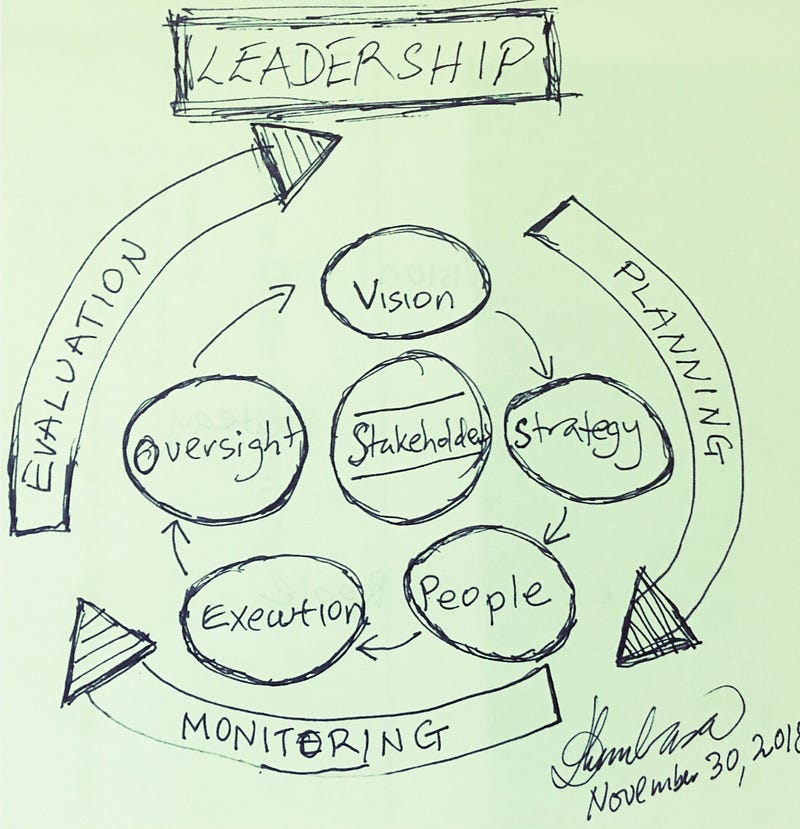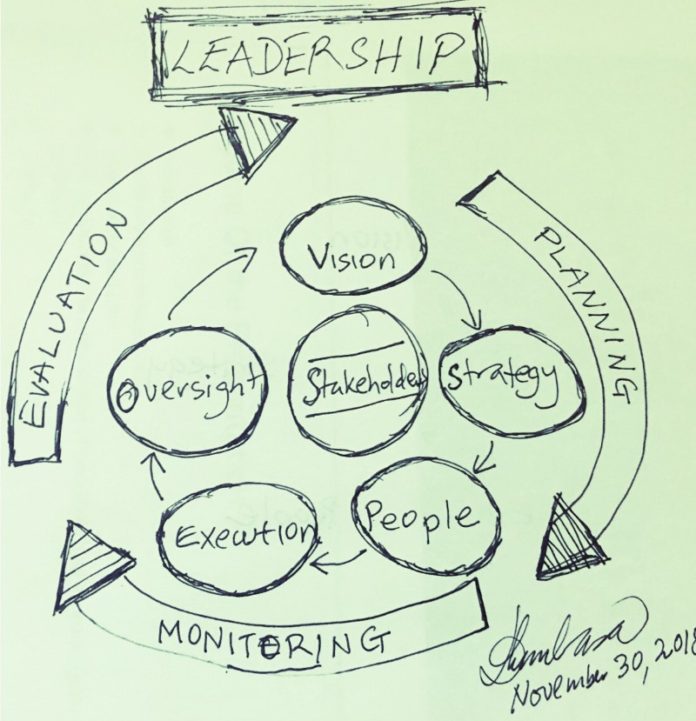By David Himbara
Dear Leadership Class, we had great fun challenging one another about what Leadership is about. As we nearly reach the end of the course, I wish us to always remember this Albert Einstein quote please:
“Many of the things you can count, don’t count. Many of the things you can’t count, really count.”
Einstein is telling us here that often, we waste time on things that don’t count — meaning that we overwhelm ourselves with unimportant matters while neglecting things that matter. In leadership, the concept of Monitoring and Evaluation (M&E) seeks to focus on things that matter.
Before looking at M&E, let us remember the five key factors in leadership.
- Vision — a shared focal point for ensuring that everyone in an organization is working towards a single purpose.
- Strategy — uniqueness for achieving vision and goals.
- People — great team to achieve vision, strategy and goals.
- Execution — careful, planned approach to attaining strategic goals.
- Oversight — mentorship and proactive engagement to ensure that the whole value leadership chain is synchronized.
So how does M&E fit into this especially in public agencies and departments?

Let us now talk M&E from your own reading making sure that we don’t lose sight of what appears in the above diagram:
- Monitoring ensures that the project/programme reaches its intended goal or outcome. An indicator can be quantitative or qualitative which provides a reasonably simple and reliable basis for assessing achievement, change and performance.
- Evaluation is used to draw conclusions about a project/programme’s relevance, effectiveness, efficiency, impact and sustainability. Evaluation is an ‘analysis or interpretation of the collected data which delves deeper into the relationships between the results’. It looks at the effects and the overall impact of the project/programme.
Monitoring is a continuing function that takes place throughout the implementation of an activity. Monitoring is a regular part of project or programme management. It focuses on the implementation of the project, comparing what is delivered with what was planned.
Evaluation assesses the entire project cycle. Evaluation reviews the achievements of the activity and considers whether the plan was the best one to achieve the outcomes.
Finally, how does M&E affect us individually?
Let us discuss now.





























































